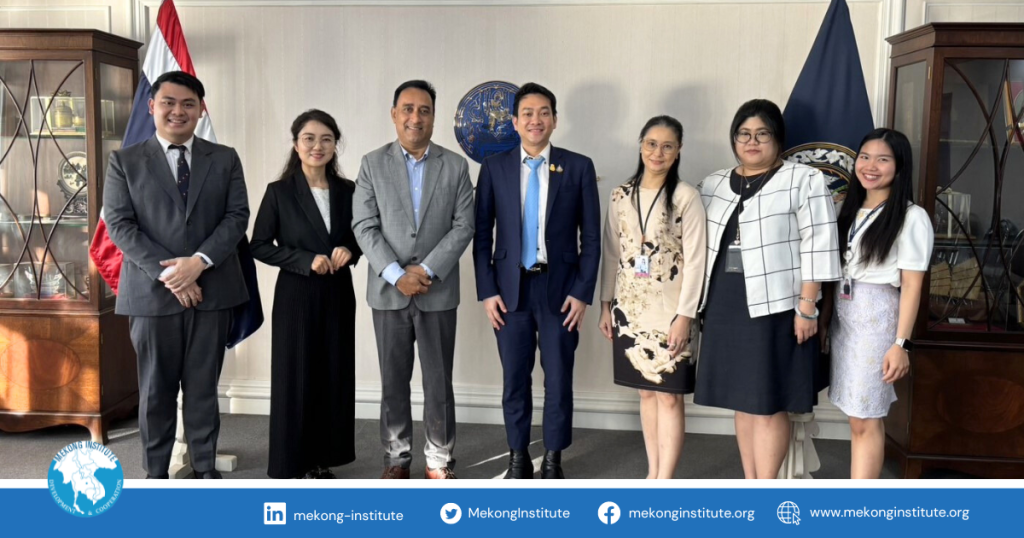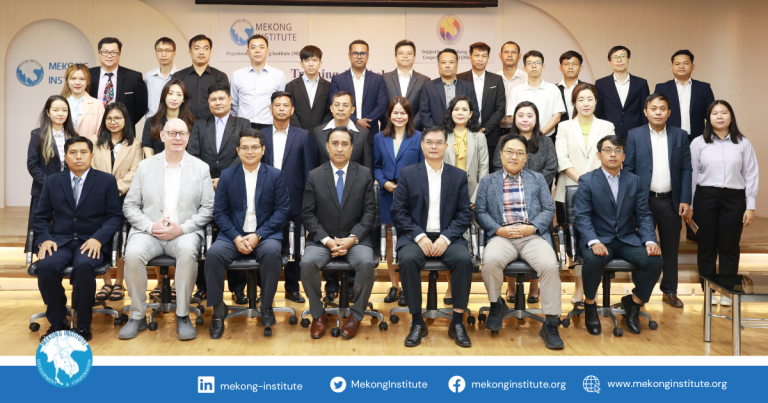In a crucial step towards advancing regional economic integration, a preparatory meeting between Mekong Institute (MI) and Thailand’s key officials was convened in Bangkok to lay the groundwork for the upcoming “Project on Special Economic Zones (SEZ) Promotion for Intra-Regional Trade in the Lancang-Mekong (LM) Region” also dubbed as “SEZ Project.”
The SEZ Project aims to bolster intra-regional trade within the LM region by promoting Thailand’s SEZs and fostering greater coordination among member countries. Slated to span from 2023 to 2026, the project is set to receive funding from the Lancang-Mekong Cooperation Special Fund of the People’s Republic of China (P. R. China).
The meeting brought together officials from the Royal Government of Thailand, including Dr. Puntil Jongjittrakoon, Vice Minister for Commerce; senior officials from the Department of Trade Negotiations, Ministry of Commerce of Thailand; and representatives from MI led by Mr. Madhurjya Kumar Dutta, Director of Trade and Investment Facilitation Department.
With Thailand’s strategic vision at its core, the SEZ Project aims to fortify supply chain links, elevate production standards, and stimulate both domestic and foreign investment, thereby amplifying economic prosperity across the region.
As part of Thailand’s comprehensive economic master plan, the country has identified 10 border provinces to establish SEZs. These zones will offer lucrative incentives and privileges following measures to promote investment in 13 groups encompassing 89 types of activities within the SEZs.
Concurrently, the Thai government has launched the Eastern Economic Corridor (EEC) program, designating three provinces in the eastern area as special socioeconomic zones under the Thailand 4.0 scheme. This program aims to revitalize significant transformations in both physical and social development, enhancing the country’s competitiveness.
Crucially, these initiatives dovetail with the Land Bridge Project, an integral component of Thailand’s Southern Economic Corridor (SEC) program. Aptly coined “One Port, Two Sides,” the initiative aims to connect the Andaman Sea to the Gulf of Thailand via transit hubs in Ranong and Chumphon provinces. All these initiatives serve as cornerstones contributing to enhanced trade and investment flows throughout the LM region.
Synced with Thailand’s SEZ development strategy, the SEZ Project proposes a series of activities, including an inception meeting, modular training, trade and investment forums, structured visits to SEZs, data collection, economic corridor portal upgrading, and establishment of mechanisms for information sharing and dissemination.
The preparatory meeting served as a platform to outline the project’s framework, deliberating on key aspects such as targeted SEZ sites, stakeholder engagement, and implementation strategies. Dr. Puntil Jongjittrakoon provided valuable insights into the advantageous industries earmarked for SEZ development, prompting adjustments to the project’s activities by the MI team.
The project is set to be formally unveiled through an inception meeting scheduled for May. This gathering will garner support and cooperation from key stakeholders involved in SEZ development across Thailand and other LM countries, including the P. R. China, Cambodia, Lao PDR, Myanmar, and Viet Nam.







